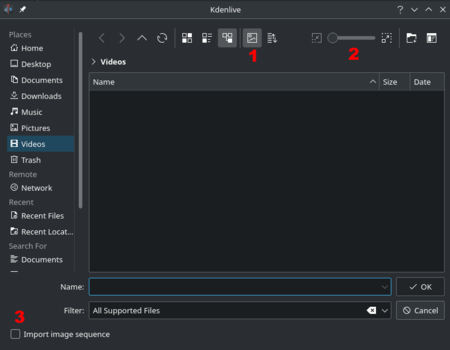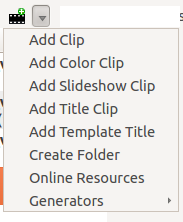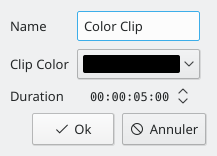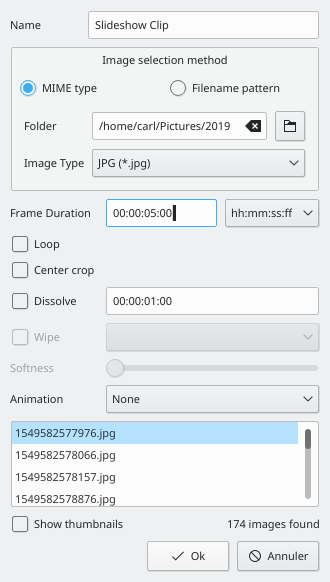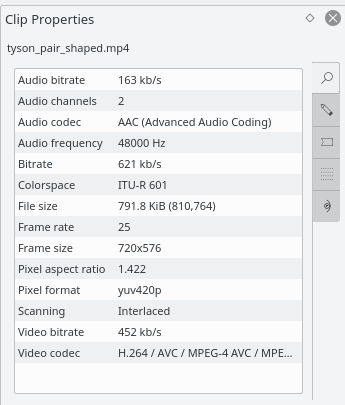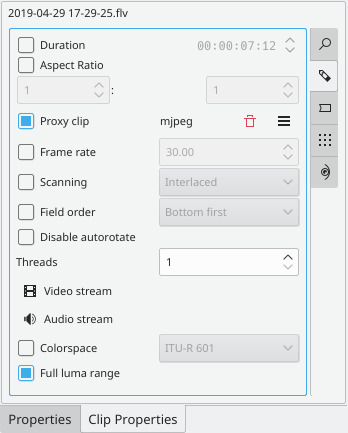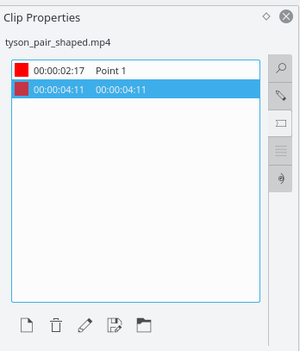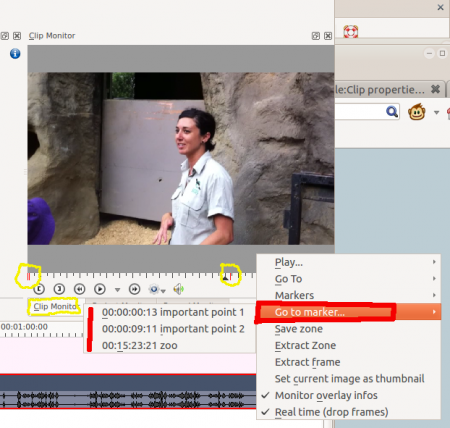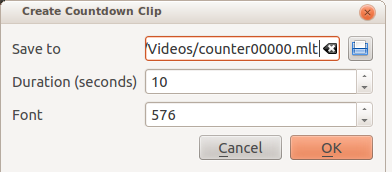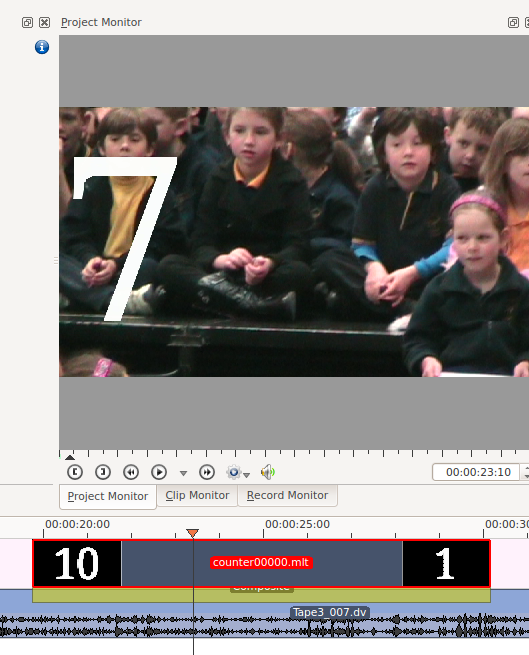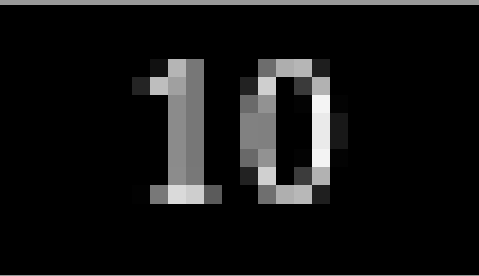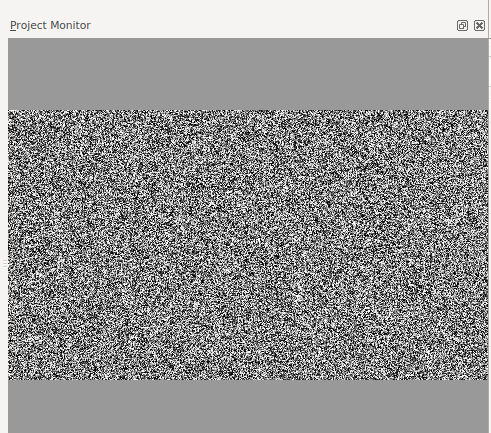Archive:Kdenlive/Manual/Projects and Files/Clips: Difference between revisions
mNo edit summary |
grammar |
||
| Line 186: | Line 186: | ||
<!--T:21--> | <!--T:21--> | ||
You can use the <menuchoice>Markers</menuchoice> tab to add markers for certain points in the source file that are important. However, it is probably easier to add markers to your clips via the [[Special:myLanguage/Kdenlive/Manual/Monitors#Clip_Monitor|Clip Monitor]] because that allows you preview the file at the location where you are adding the marker. | You can use the <menuchoice>Markers</menuchoice> tab to add markers for certain points in the source file that are important. However, it is probably easier to add markers to your clips via the [[Special:myLanguage/Kdenlive/Manual/Monitors#Clip_Monitor|Clip Monitor]] because that allows you to preview the file at the location where you are adding the marker. | ||
<!--T:22--> | <!--T:22--> | ||
Revision as of 06:19, 26 January 2015
Clips
See also Clip Menu.
Clips (Video, Audio and Images)
The ![]() button (Add Clip) brings up the Add Clip Dialog where you can choose video, audio or still image clips to add to the Project Tree.
button (Add Clip) brings up the Add Clip Dialog where you can choose video, audio or still image clips to add to the Project Tree.
The button ![]() labeled 1 toggles File Preview on and off. The slider labeled 2 adjusts the size of the preview icons. The checkbox labeled 3 enables the import of a series of images that can be used to make a stop motion animation. The checkbox labeled 4 makes the process respect an alpha channel in the source images ref.
labeled 1 toggles File Preview on and off. The slider labeled 2 adjusts the size of the preview icons. The checkbox labeled 3 enables the import of a series of images that can be used to make a stop motion animation. The checkbox labeled 4 makes the process respect an alpha channel in the source images ref.
You can add other types of clips by choosing a clip type from the menu brought up from the drop down button next to the ![]() button.
button.
Color clips
Color clips are images composed of a single color that can be added to the Project Tree. They can be useful to provide a background on which to place titles.
Add color clips by choosing from the drop down button next to the ![]() button.
button.
This brings up the Color Clip dialog from which you can choose a color and a duration.
Clicking adds the clip to the project tree. The clip can then be dragged to the timeline. The duration of the color clip can be adjusted on the timeline.
Title clips
See Titles
Slideshow clips
Slideshow clips are clips created from a series of still images. The feature can be used to make an animation from a collection of still images or to create a slideshow of still images. To create the former, use a short frame duration; to create the latter, use a long frame duration.
To create a slideshow clip, choose from the drop down list.
From the Slideshow Clip dialog choose as Image selection method.
Browse to the location of the images which will make up your slideshow and select the first image. The subsequent images that are to be used in the slide show will be selected based on some sort of filename algorithm that predicts what the next image file name should be.
For example, if the first image is 100_1697.jpg then the next will be 100_1698.jpg, etc.
Select an appropriate frame duration — this defines how long each image be dispayed.
Then hit . A video file made up of all the images in the folder from which you selected the first frame file from will be added to the Project Tree.
You can then drag this video to the timeline.
Center crop: automatically fills the output video frame with the images while maintaining their aspect ratio by cropping equal amounts from each edge. Said another way, it removes the black bars that will appear when the photo orientation or aspect does not match the video's.
Animation: adds preset slow smooth pan and zoom effects also known as the Ken Burns Effect. You can choose no animation, pans only, zooms only, or a combination of pans and zooms. Each option also has a low pass filter to reduce the noise in the images that may occur during this operation. Low pass filtering is much slower, so you should preview without it, and then enable it to render.
Create Folder
see Create Folder
Online Resources
see Project Menu - Online Resources
Stop Motion
Proxy clips
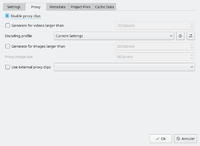
Proxy clips are one of the most useful inventions for editing if you are not working on an ultra high-end machine. The trick is that the original clips are replaced by clips with lower resolution and a less complex codec. Video decoding, e.g. of H.264 clips, requires a lot of computing power and computing power is required for rendering effects in real time. If insufficient power is available, playback will stutter. Proxy clips require hardly any computing power at all, which allows fluent playback.
Proxy clips can be enabled/disabled for the current project in the Project Settings ().
To enable proxy clips by default for new projects, go to . See also the Project Settings page
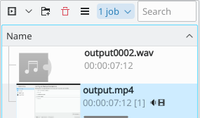
As soon as proxy clips are enabled, they can be generated for specific project clips in the Project Tree widget via the context menu . After you select for a clip, a job will start to create the clip. You can view the progress of this job by looking at the little gray progress bar that appears at the bottom of the clip in the Project Tree — see picture. Clicking again disables the proxy for this clip.
You can multi-select clips in the Project Tree and select to start a batch proxy clip generation job which will queue up multiple proxy clip generation jobs.

Once the proxy clip creation has completed, the proxy clip will appear with a P icon in the Project Tree.
When rendering to the final output file, you can choose whether to use the proxy clips as well. It is disabled by default , but for a quick rendering preview it is useful.
Clip Properties
You can display and edit clip properties by selecting a clip in the Project Tree and choosing from the menu or from the right-click menu.
Video Properties
Advanced Properties
The tab displays... well... the advanced properties of the clip. You can edit the advanced properties here. For example you can use Force aspect ratio to tell a clip that seems to have forgotten it was 16:9 ratio that it really is 16:9 ratio.
Advanced Clip property options are:
- Force aspect ratio
- Force frame rate
- Force progressive
- Force Field order
- Decoding threads
- Video index
- Audio index
- Force colorspace
- Full Luma range
Markers
You can use the tab to add markers for certain points in the source file that are important. However, it is probably easier to add markers to your clips via the Clip Monitor because that allows you to preview the file at the location where you are adding the marker.
Once markers are put in your clip, you can access them in the Clip Monitor by right-clicking and selecting (see picture.) Also note how the markers appear as red vertical lines in the Clip Monitor (see yellow highlighted regions in the picture.) You can turn on the display of the marker comments in the timeline too (see Show Marker Comments).
Markers can also be added to clips on the timeline. Right-click the clip and choose . Markers added this way also appear in the clip in the Project Tree.
Generators
Countdown
This generates a countdown timer clip which you can put onto the timeline.
The font number in the dialog is a font size in pixels. However Kdenlive displays the font in a zoomed-in fashion and thus lower numbers appear to be lower quality. See the pic below which is a font size 10 compared to the screenshot above which is font size 576.
Apparently you need a pan and zoom effect to make the font of the countdown smaller
Noise
This generates a video noise clip — like the "snow" on an out-of-tune analogue TV.

